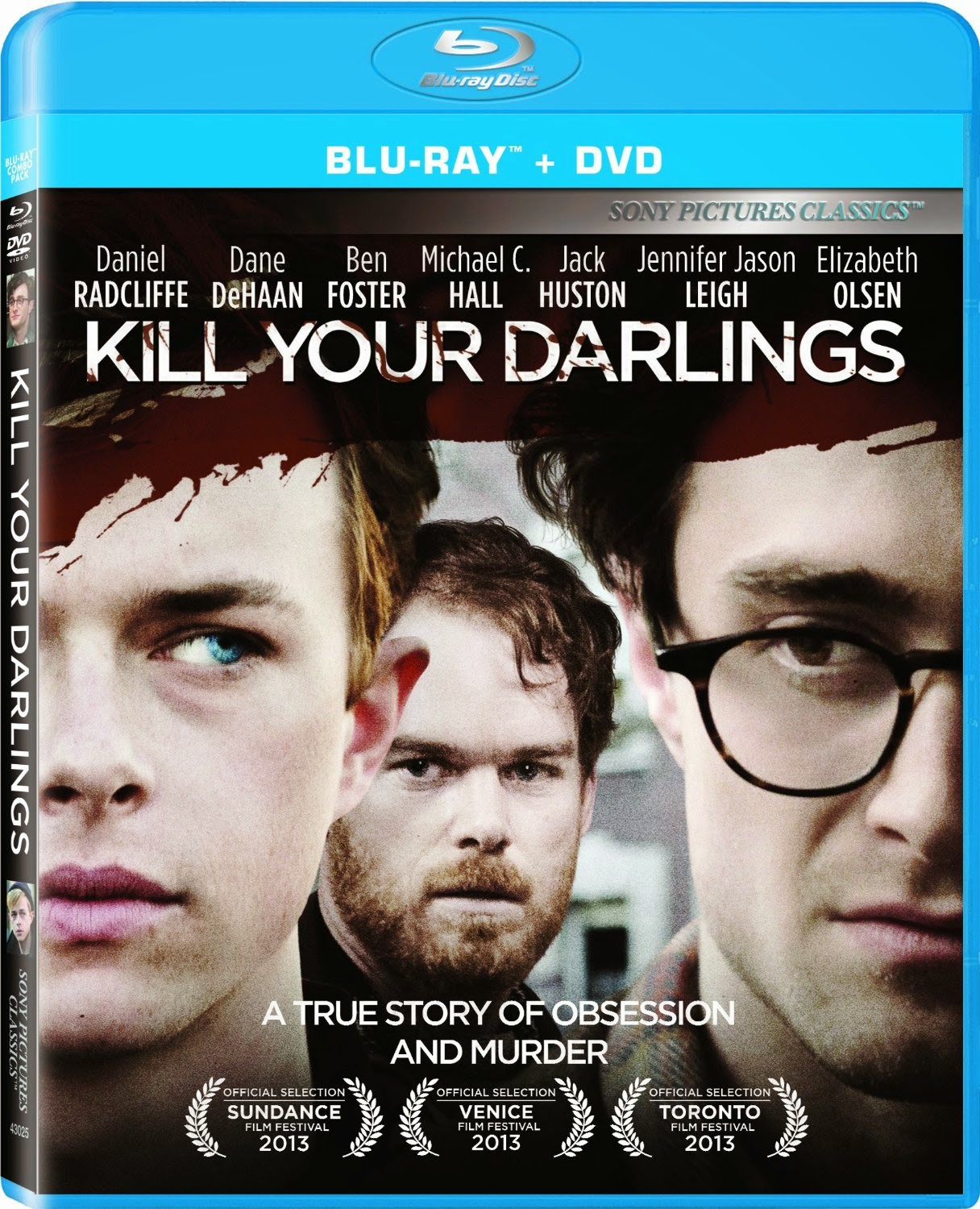I've never been a big fan of movies that are too wrapped up
in their "artistic integrity" to be entertaining. There are certain
subjects that film makers, writers and other artists have as deeply held
convictions on as the most religious zealot to stand on a pulpit proclaiming
his faith. The difference is that most of these artistic zealots believe in
their art above all else and hold the men who influence them as sacred. It's
the same reason we yearly have millionaires awarding other millionaires awards
on TV.
The case in point this time around is the author Allen
Ginsberg, a poet that many have proclaimed to be the voice of his generation, a
generation known at the beat generation. I'm sorry but if you have to call
yourself part of a group while saying people shouldn't be part of a group,
you're pretentious. Ginsberg was a member of that same group of people that
included both Jack Kerouac and William Burroughs. All are involved in the
release of KILL YOUR DARLINGS.
This true story begins with Ginsberg (Daniel Radcliff) heading
off to college where his world completely changes. On a tour of the library for
freshmen he is witness to an outburst by bad boy Lucien Carr (Dane DeHaan). In
class he immediately starts off by disagreeing with his professor about the
dynamics of how poetry should be written which catches the eye of Carr. Soon
Ginsberg is recruited into the world of Carr.
Rather than follow along with the standard things people do
in college like sporting events, lectures or pep rallies (the film takes place
in the 40's), Ginsberg is led down into a seedier world near Harlem by Carr. He
is exposed to jazz and blues music, drinking & drugs and the intelligentsia
of society. At a party he meets Burroughs (Ben Foster), lying in a dry bathtub
inhaling nitrous oxide. He also meets the host of the party, David Kammerer
(Michael C. Hall), holding realm over the rest and seemingly having a
controlling eye on Carr.
The immediate friendship between Ginsberg, Carr and
Burroughs develops as they come up with a concept, a manifesto if you will,
about the change that is to come in art and society, a new vision. Led by Carr
who offers up ideas left and right, Ginsberg is so caught up in the moment that
he fails to realize that Carr has rarely if ever come upon an idea on his own.
Hints are dropped everywhere that most if not all of his ideas come from
Kammerer. As the movie progresses we soon discover that Kammerer does indeed
have a hold over Carr. The most obvious hold is that he writes all of Carr's
papers for his classes. The other is that he has involved Carr in a homosexual
relationship; a relationship not only frowned upon at the time but illegal as
well.
Through it all Ginsberg remains oblivious on the surface. At
the same time he's developing his own crush on Carr. Never involved in a
relationship prior Ginsberg feels his developing homosexuality grow the more
involved he becomes with Carr.
The three friends ramble on about art and how they will
change the world. They bring Carr's friend Jack Kerouac into their plans. They
display their rebellion in acts like breaking into the library and replacing
rare display case books with erotic books kept locked up. They fail to go to
class and yet consider themselves part of the University, intent on changing it
all the while. Always hanging on is Kammerer, trying to control Carr while
Ginsberg begins to do all in his power to part the two. Eventually the conflict
that develops will end in murder and revelations for all as to who they truly
are.
The worshipfulness on display by the screenwriter and
director for the beat generation runs rampant here. It's as if they feel these
characters can do no wrong no matter what they do, as if they are the cool kids
that they so long wanted to be. The same holds true for the actors, especially
Radcliff. Why is it that child stars always seem to leap towards roles that
require them to either undress or do "adult" things to prove they are
truly actors? Radcliff has done nudity on stage and here offers us a gay
lovemaking scene that while not showing the entire act leaves little to the
imagination. Straight sex scenes in movies have become boring. Gay sex scenes
to me seem done for little more than shock value.
In the end I couldn't recommend this film to anyone with the
exception of the gay community who will proclaim it a standard by which all
films should be made. It will also be a film that those who criticize will find
themselves called homophobic over. There are some truly great movies made
concerning the topic of homosexuality and offering an understanding viewpoint.
This is not one of them. From a movie standpoint to me it was boring and felt
as if it was in love with itself. Not even a quick finger on the remote's fast
forward button can save this one.
Click here to order.


No comments:
Post a Comment